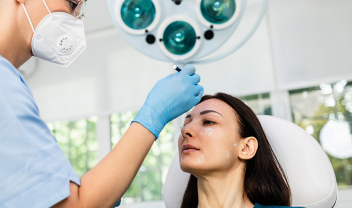1. Essential medical spa laws
Medical spas have become incredibly popular, offering treatments that make you feel glamorous and pampered. In many cases, however, these procedures also fall within the realm of medicine. As a result, they must adhere to the same regulations and rules that govern medical practices in your state.
As more and more people make med spas part of their lives, attention from regulatory agencies is only increasing. High-profile cases of bad-faith businesses cutting corners and injuring patients have created huge headlines and put a spotlight on an industry that has so far operated under the radar of many enforcement agencies.
Whether you're interested in injectables like neuromodulators and fillers, energy devices such as lasers and body contouring devices, or treatments like thread lifts, microneedling, and IV therapy, it's crucial to familiarize yourself with the laws in your state to ensure compliance.
The baseline of medical spa legal compliance focuses on these three areas:
Who can legally own a medical spa?
Who can legally diagnose med spa patients?
Who can legally perform medical spa treatments?
The answers to these questions can vary widely from state to state, but understanding the baseline behind the rules can put you on solid footing. For a deeper dive into med spa laws, read how to open a legally compliant medical spa.
Who can legally own a medical spa?
Physicians can own medical practices in throughout the country, so physicians and physician-owned corporations are able to own medical spas. After that, things can get complicated.
At issue is a doctrine called the corporate practice of medicine. States that follow this doctrine restrict who is able to own medical practices, employ physicians and receive payment for medical treatments. Many corporate practice of medicine states allow other medical professionals (in some cases NPs, PAs, or RNs) to own a portion of a medical practice as long as a physician holds the majority. Other state require full physician ownership.
In states that do not regulate the corporate practice of medicine, generally speaking, any licensed or unlicensed individual may own part or all of a medical spa.
However, non-physicians looking to participate in revenue from medical spas do have a legal pathway. A corporate entity known as a Management Services Organization 1) Can manage many non-medical tasks for a medical spa, 2) Can receive payment in exchange for these management services and 3) Can be owned by anyone regardless of medical license. Learn more about MSOs.
Who can legally diagnose med spa patients?
Whether it's called the Good Faith Exam, the initial exam, the initial patient consultation or any other variation, seeing a patient and deciding on a treatment plan for a medical procedure is defined as the practice of medicine in every state in the country. Therefore, treatment diagnosis must be performed by a physician, or an NP or PA working in collaboration with a physician - though there are exceptions in states that allow independent practice. This examination must occur before the first time a patient begins a new line of treatment.
It is critical to understand that an RN cannot administer the Good Faith Exam without running the risk of criminal prosecution for the unauthorized practice of medicine.
Read more detail about the Good Faith Exam here.
Who can legally perform medical spa treatments?
The question of who can perform med spa treatments can be narrowed down into two buckets: who is allowed to do the procedure, and what kind of supervision does that person require.
Listen to AmSpa founder Alex Thiersch, JD discuss the challenges in finding, understanding and interpreting med spa laws across the country.
Read more on who can own a med spa here.







